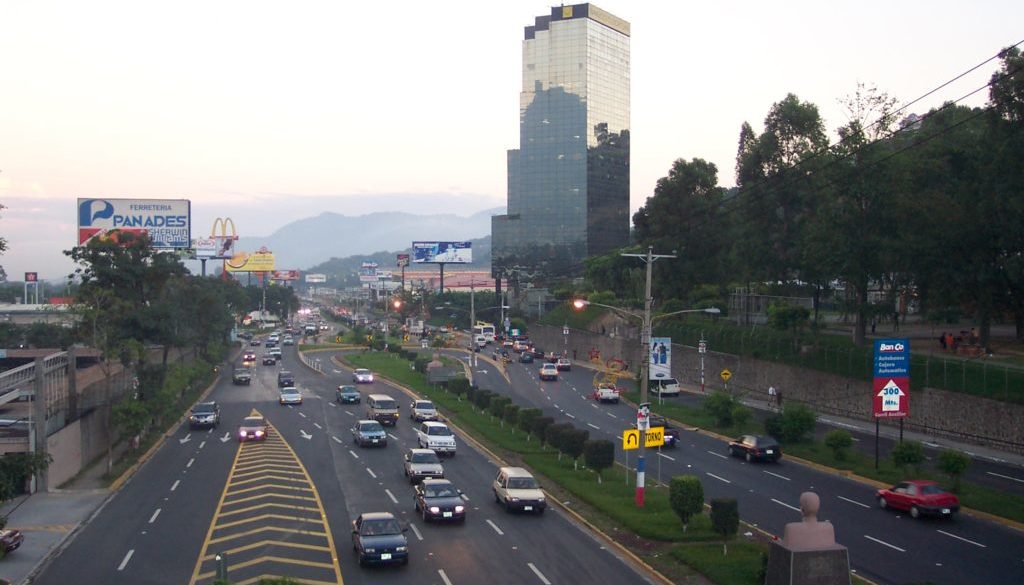Five Challenges Currently Facing the Salvadoran Economy
Table of Contents
President Bukele announces economic development plan
At this juncture in the 2020 calendar year, there is hope that the Salvadoran economy will begin to experience increased momentum, to receive measurable foreign direct investment, and to impose discipline over the nation’s public finances.
Some of this optimism is the result of President Nayib Bukele’s recent announcement of his “Despegue Economico (Economic Take Off) Plan.” With the implementation of this initiative, the Salvadoran government seeks to increase investment by both nationals and foreigners in the Salvadoran economy. Additionally, it is hoped that, with increased investment, much needed job creation will ensue.
According to the country’s Central Reserve Bank (BCR) the Salvadoran economy is expected to grow at a 2.5% rate in 2020. In order to surpass such an estimate, however, the country and its policymakers must effectively address five important challenges:
-
Improving the Investment Climate.
Since the fourth quarter of 2019, the nation’s leading entrepreneurs and economists have stressed that increased investment would be needed to give the Salvadoran economy a much- needed boost.
According to the lead economist for the Salvadoran Foundation for Economic and Social Development (Fusades), Pedro Argumedo, it is of great importance that President Nayib Bukele prioritize and present a complete plan of his vision for the Salvadoran economy in the first quarter of 2020. For its part, El Salvador’s INCAE business school estimates that the nation requires an investment influx of $1.5 billion each year in order to keep pace with the growth rates of the rest of its Central American neighbors.
Argumedo also believes that it is necessary that El Salvador’s Investment and Export Promotion Agency (Proesa) play an important role in the development of the country’s long-term economic plans and strategies. He sees the organization’s activities as playing a critical role in the articulation of Bukele’s agenda of economic freedom and internal security needed to achieve the injection of both domestic and foreign capital.
-
Taking Advantage of Existing Commercial Treaties
The Salvadoran economy would greatly benefit from taking advantage of trade treaties that exist with 40 nations around the world. Doing so would greatly facilitate the flow of imports and exports of Salvadoran goods.
The close social and economic relationship that El Salvador has with other countries is evident from the boost that the country’s economy receives from the steady flow of international remittances. The RBC has recently provided information that shows that such transfers of money to El Salvador from Salvadoran nationals overseas grew at a rate of 4.8 percent in 2019 and reached its high of US $551 million during the month of December. A full 90% of the money that Salvadorans send from abroad comes from compatriots that are residing in the United States.
-
Enhancing the Ease of Conducting Business
Members of the El Salvador Exporters Corporation (Coexport) have recently petitioned the newly elected government of President Nayib Bukele to examine the issue of the ease of doing business, as it relates to the health and well-being of the Salvadoran economy.
Specifically, the members of Coexport assert that, in order to increase the country’s competitiveness, the government must provide more incentives for investment, must undertake activities that ramp up trade promotion efforts, must upgrade the Salvadoran infrastructure in order to facilitate logistics and mobility, and must work in an effort to develop more export markets in which to sell the nation’s products.
In addition to Coexport, the Salvadoran Association of Industrialists (ASI) and the Inter-Union Commission for the Facilitation of Trade (CIFACIL) have petitioned the government to act to maximize the ease of doing business in the country by promoting new customs regulations that cut red tape.
-
Imposing Fiscal Discipline in the Area of Public Finances in the Salvadoran Economy
El Salvador faces the important task of keeping its national fiscal house in order. Multilateral agencies such as the International Monetary Fund (IMF), while acknowledging the country’s economic stability, have also reiterated their recommendations to implement and update a Fiscal Responsibility Act. This would benefit the Salvadoran economy by limiting government expenditures and maximizing tax revenues.
The IMF has also counseled Salvadoran economic policymakers to limit the acquisition of new debt in order to enhance the country’s sovereign risk rating. Imposing such discipline is central to optimizing the performance of the Salvadoran Economy.
-
Securing Pensions and Social Welfare Programs
Last, but not least, El Salvador must protect and ensure that its country’s citizens are able to lead dignified and full lives; from birth into old age.
In 2017, the country’s National Legislative Assembly took action to reform the Salvadoran pension system. For example, one of the several changes that have been implemented resulted in increasing savings from workers’ salaries for pensions from 6.25% to 7.25%. Along with contributions from employers, saving for retirement pensions is up from 13% to 15%. It is agreed that policymakers must continue to improve and preserve the system.
Contact Us
Please use this form to contact us and we will respond as soon as possible:





